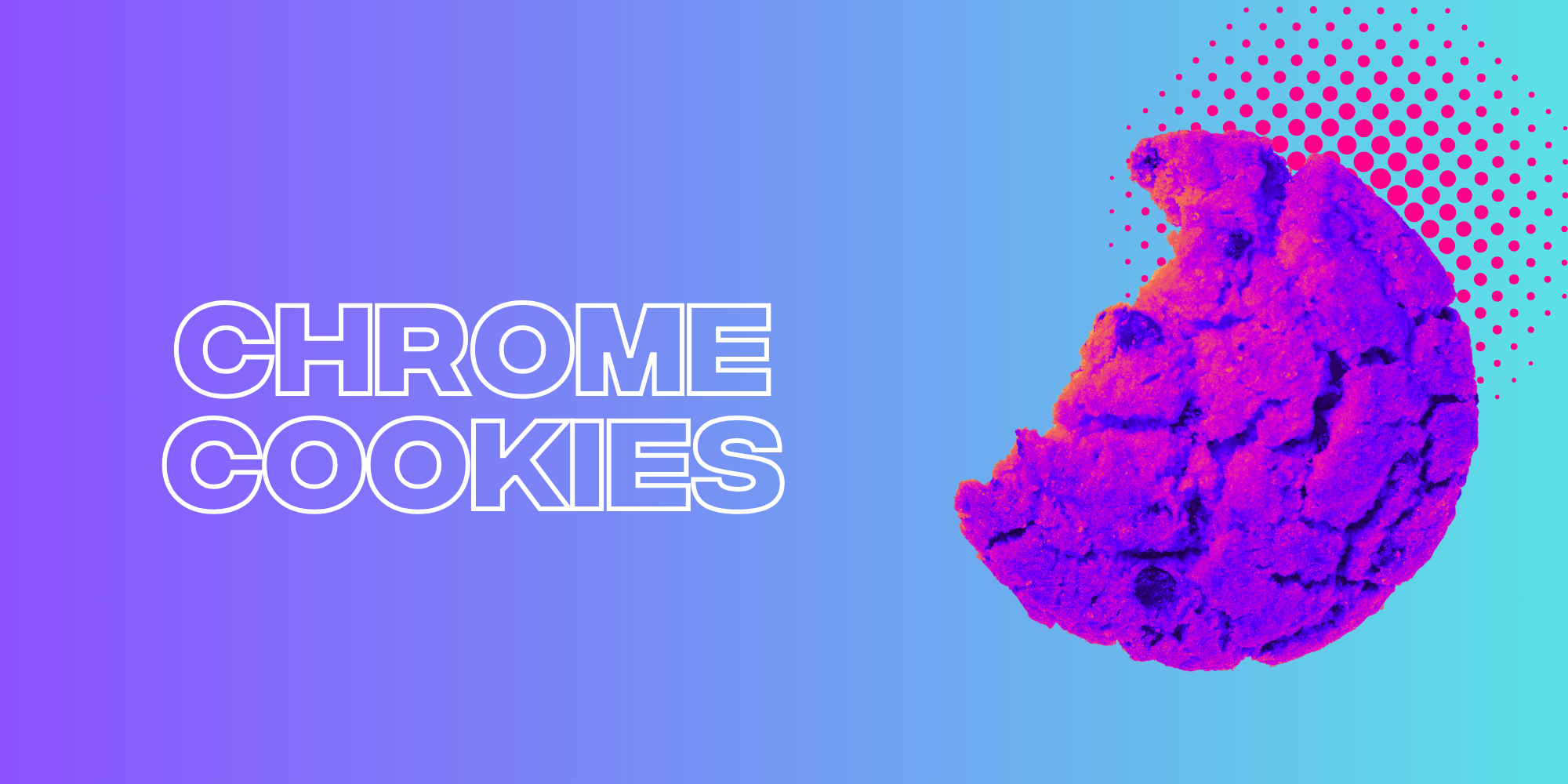Google Chrome Cookies Reform Looks Like This
Nov 22, 2024
Marketing News

After nearly half a decade of “will they won’t they” fears, Google is finally ready to show the world its new Google Chrome cookies opt-in model – almost.
Back in 2020, Google announced that it was going to end third-party cookies. Fast forward to July 2024, and Google repealed its claims. Now, even more news to share.
Recent announcements from sources close to the technology giant say it is gearing up to unveil its model, which the platform says should help internetgoers make more informed decisions about cookie usage. Ultimately, this means Chrome users can now decide whether to give Google Chrome cookies the axe or let them stick around.
How did we get to this point? What changed Google’s mind from four and a bit years ago when they were determined to get rid of third-party cookies entirely?
Let’s take a look back at the many decisions Google made to get us here.
INITIAL ANNOUNCEMENT JANUARY 2020
@npdigitalglobal 🚨 Google just changed the game—again! Chrome will keep cookies for now, but don’t get too comfortable. 🍪 With Chrome dominating over 2/3rds of the browser market, this is big news for marketers. But remember, cookies might still disappear from other platforms, so future-proof your data strategy now! If you want to future-proof your data, Nick has some insights to share about what this news from Google means for you and your brand/business. 🌐 The only constant in digital marketing is change, so don’t rely solely on cookies—keep exploring holistic ways to measure your performance. #DigitalMarketing #SEO #Google #Cookies #MarketingStrategy
In January 2020, Google first announced its plan to phase out third-party cookies on Chrome. The proposed timeline predicted cookies to be gone from the platform by 2022.
The initiative was part of the Privacy Sandbox project, a quest by Google to provide users with a more private approach to internet usage; more private than third-party cookies, that is. Google promised to create alternatives to third-party cookies for both ad measurement and tracking, allowing users to feel more secure spending time online, and brands to still target audiences effectively.
The emphasis in this initial announcement was privacy; Google wanted to protect its users, but still maintain an open and ad-supported web.
FIRST DELAY (JUNE 2021)
@morningbrew Is this the end of “accept/deny cookies” pop ups? #google #tech #business #businessnews #webbrowser
Introducing the very first delay. In June of 2021, Google announced that it would be delaying its plans to rid Chrome of third-party cookies. The phase-out of its new model was delayed to 2023.
During the announcement, Google cited a myriad of reasons for the delay of its end to Google Chrome cookies. Chiefly, the new model was kept receiving feedback from advertisers, developers, and regulators saying the ecosystem required more time to adjust to the new technologies being created in the Privacy Sandbox.
To soften the blow, Google committed to public testing and implementation periods for Privacy Sandbox tools.
SECOND DELAY (JULY 2022)
@alericheck Google Chrome Cookies Are Going Away Next Year… It’s a game-changing moment in the online advertising world, and I’m here to break it down for you. With Google’s groundbreaking announcement to phase out cookies by the end of 2024, the landscape is shifting beneath our feet. But fear not, because this is not the end; it’s a new beginning. The move towards eliminating cookies is a response to growing privacy concerns and regulations worldwide. This means we, as online advertisers, need to pivot our strategies towards more sustainable and privacy-compliant methods. The future? It’s all about first-party data. It’s time to double down on building relationships directly with your audience. Encourage them to opt into your CRM or email list. This not just safeguards your marketing efforts against these changes but also opens a new chapter of trust-based marketing. digitalmarketing advertising googleads businessgrowth
July 2022 saw yet another delay, with Google pushing the removal of Google Chrome cookies to Q3/Q4 of 2024.
The reasoning? According to Google, its developers still needed some time to properly test and integrate Privacy Sandbox APIs into their workflows. Essentially, developers had to make sure that their platforms could integrate these new APIs (new technologies created to replace third-party cookies) without losing any functionality.
On top of this, Privacy Sandbox APIs had to comply with privacy regulations, so developers had to ensure that their implementations met legal and technical requirements – all the while still upholding compatibility with set web standards.
Ultimately, Google took a collaborative approach with its Privacy Sandbox, involving developers at every step of the way, testing APIs and providing feedback. Whilst this ensured the new technology would address the news of advertisers, publishers, and regulators, it also slowed down the rollout process significantly.
PRIVACY SANDBOX DEVELOPMENTS (2022–2024)
@scienceaffairsshow Google is getting rid of cookies 🍪 #tech
For the next two years Google was, surprisingly, silent on its plans for Google Chrome cookies. The company dedicated itself to testing key Privacy Sandbox technologies, including Topics API (replacing cookies with interest-based advertising), FLEDGE (allowing remarekting without cross-site tracking), and Attribution Reporting API (enables conversion tracking whilst allows users to keep their anonymity).
Google tested these new technologies with industry stakeholders extensively.
JULY 2024: SHIFT IN STRATEGY
@callrail It’s snack time! 🍪 Marketing expert Darrell guides us through the upcoming changes to third-party cookies on Chrome and how to prepare for this transition. Check out the link in our bio to learn more. #googlechrome #thirdpartycookies #marketing2024 #marketingtrends
July 2024 brought with it a major surprise. Google shared that it was changing its strategy. Rather than fully abandoning Google Chrome cookies as it had promised four years ago and avdertisers had been preparing for, instead the technology giant was planning on moving towards an opt-in model.
Much like the wave of social media subscriptions that 2024 has brought, this new model would allow users to decide whether or not they want Chrome to use their data to aid advertising. The decision was, seemingly, an olive branch; a way to allow users to have a say over how their personal data is used, but also keep up with the practical needs of advertisers.
It goes without saying that people were less than impressed. After a full four years of preparing for a major cookie shutdown, advertisers were told that they could throw all that out the window. How this new model would work or exactly why Google decided to change its mind was kept private.
NOVEMBER 2024: ANNOUNCEMENT OF OPT-IN MODEL FEATURES
@micromoments27 🍪 No More Cookies in 2024🍪 Google has announced that in 2023 they will not use cookies in its Chrome browser. Now Safari have been doing this for quite a few years now. And let’s be clear that their are other technologies that tracker users around the web than just cookies. Things like first-party cookies will also still be used on Chrome (and other browsers) which are cookies that are only for the purposes of the website itself. Google however are desperate to find a more private means of allowing their advertising platform to work just as effectively. Which is tricky without third party cookies. Meta have been using an API which allows data to essentially be piped directly to Meta without the need of cookies. It’s hard to say that this is any more private however. What do you think? Comment below! No more cookies in 2023. No, i don’t, i don’t mean those cookies. I mean the cookies that track you around the internet. Now, google was supposed to be getting rid of cookies many, many moons ago. However, they kept delaying it because, honestly, they probably couldn’t find a better alternative to cookies. However, like everyone else, they blamed the pandemic. It’s a bit of a big problem for google because most of their revenue, eg, through ads actually relies on cookies. So they need to find something that definitely, absolutely works. And maybe they have cause. Now, google have announced that by 2023, there will be no more cookies. Well, you know, until they announce that they’ve delayed again, they almost certainly will.
Now we arrive at the most recent of Google’s announcements. Just a few days ago, Google revealed that it is (finally) getting ready to show off how Google Chrome cookies will work from here on out.
The announcement was music to users’ and advertisers’ ears alike. Finally, a genuine, physical example of what this new phase of the internet will look like – we hope. Google has been fairly ominous when it comes to what it is actually going to show the public in its display of its new Google Chrome cookies program.
Up until the big reveal, Google will be working on protecting user privacy while supporting advertising ecosystems, enhancing user control by needing explicit permission for third-party cookies, and refining technologies such as FLEDGE and Topics API to ensure they are of high quality.
In terms of timelines, Google announced that the tech’s phased rollout should take place in Q3 of 2024.
LOOKING AHEAD
Finally, we land at present-day – waiting with bated breath for Google’s next announcement, change, or curveball for Google Chrome cookies.
The industry remains largely divided on Google’s approach. Whilst some applaud its focus on privacy and the improvements it is trying to make in the data-usage space, others are critical of the potential implications Private Sandbox may have on advertisers and competition.
One thing the industry can agree on, however, is being frustrated. Anger at Google is widespread, a result of advertisers trying their very best for the past 4 and a bit years to prepare for a third-party-cookie-less future, only for Google to turn around and change its mind.
Whether Google sticks with its current plan – wherein individual users hold the power of deciding whether or not to allow third-party cookies – or goes with a whole new one altogether, it is no doubt that the company’s Private Sandbox will be a pivotal moment in the evolution of online privacy and digital marketing.
Our influencer marketing agency and social agency are located worldwide, with our agency network based in the USA, UK, UAE and China.
If you want to find industry insights, visit our influencer marketing and social media blogs.
@sociallypowerful
Social And Influencer Marketing News + Insights
Get in touch
We'll show you how to start powerful conversation, drive social engagement, build your brand, hit sales targets or meet other goals you have, wherever you are in the world.
Work with us





